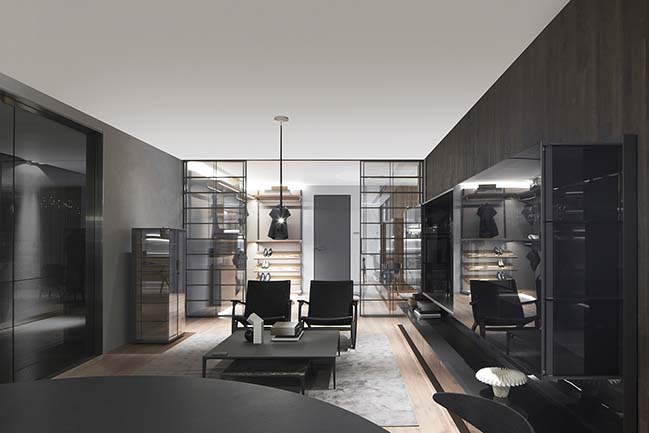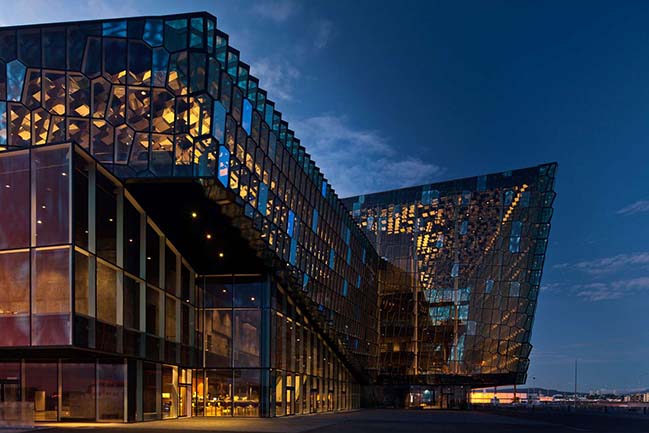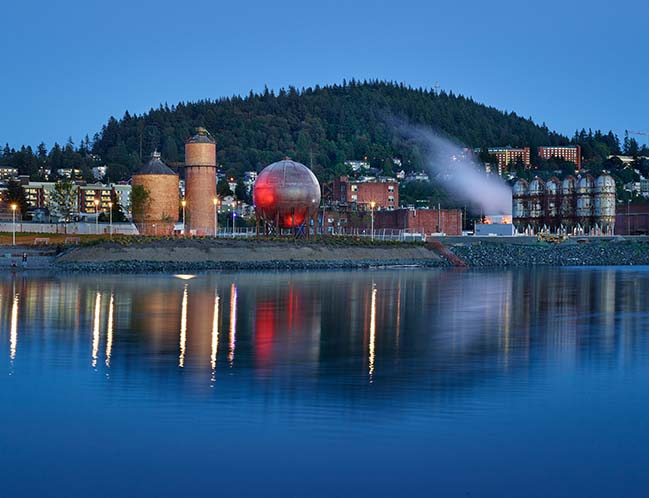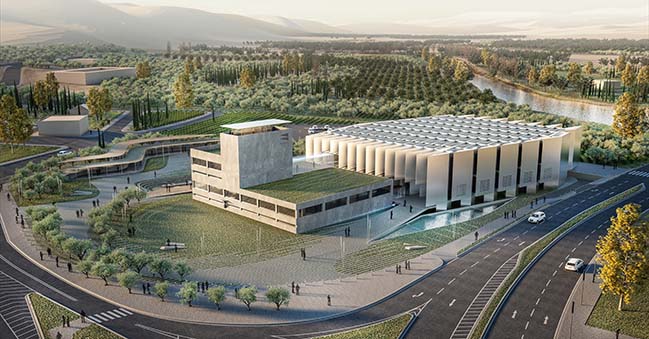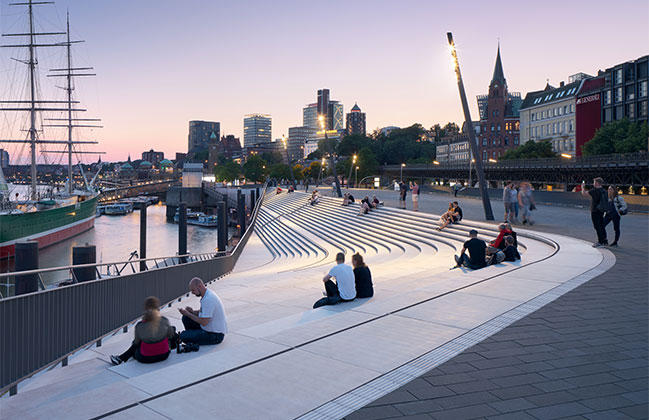08 / 22
2019
The strategy for the chapel at Kooroomba was to engender an emotive response to place, for the special event of a wedding or the inquisitive exploration of the site’s landscape setting.
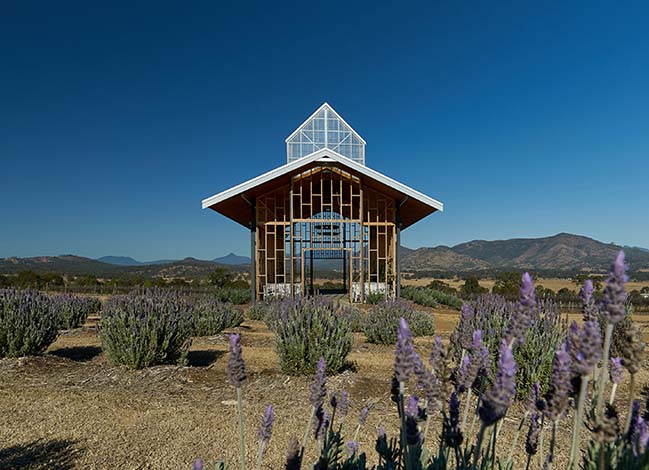
© Alex Chomicz
Architect: Wilson Architects
Client: Kooroomba Vineyard and Lavendar Farm
Location: Mount Alford, Queensland, Australia
Year: 2018
Gross built area: 120 sq.m.
Design Team: Hamilton Wilson, Tom Sealy
Engineering Team: Kelvin Crofton & Associates
Landscape Team: Wilson Landscape Architects
Contractor: Kowald Builders
Geotechnical: East Coast Geotechnical
Building Certifiers: GMA Certification Group
Photography: Alex Chomicz, Daniel Tsang
From the architect: Three aesthetic concepts established the arrangement of the experience: the Pastoral, the Picturesque, and the Sublime.
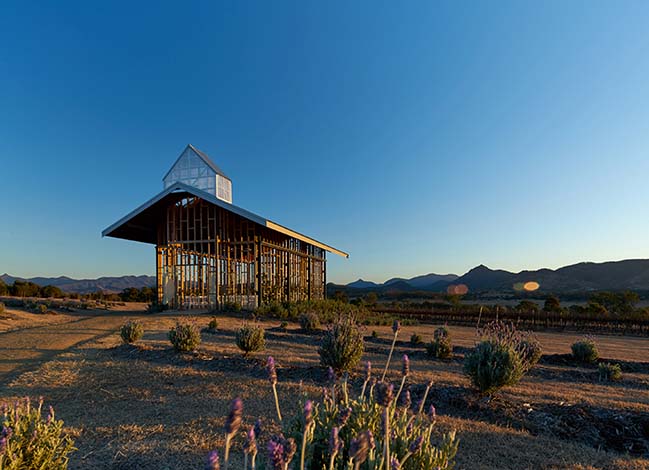
© Alex Chomicz
While the Pastoral and Picturesque reference mankind’s ability to control the natural world, the Sublime is a humbling reminder that nature ultimately dominates. Here at Kooroomba we have all three laid out in its dramatic setting. Lavender fields and wine grape trellises create ordered pastoral patterns in the landscape.
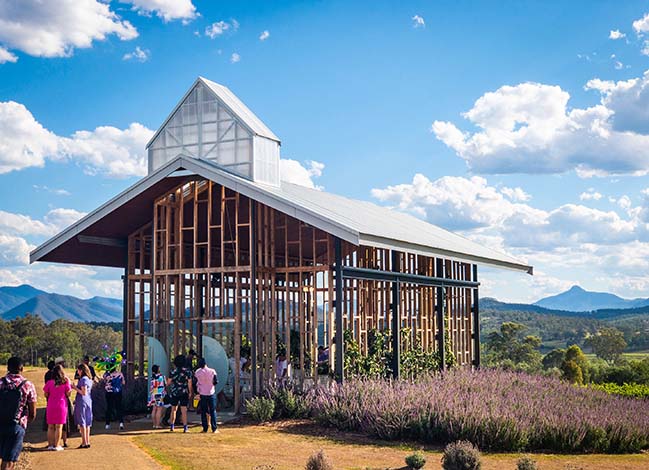
© Daniel Tsang
The buildings are then edited into this cultivated field where the Chapel becomes calibrated in its placement to picturesquely reveal two facades in a classically aligned repose (think Parthenon) as well as romantically draw the visitor toward the object as a ‘ruin’ in the landscape. The ruin being quintessentially picturesque which was, in the late 18th century, often constructed as a folly.
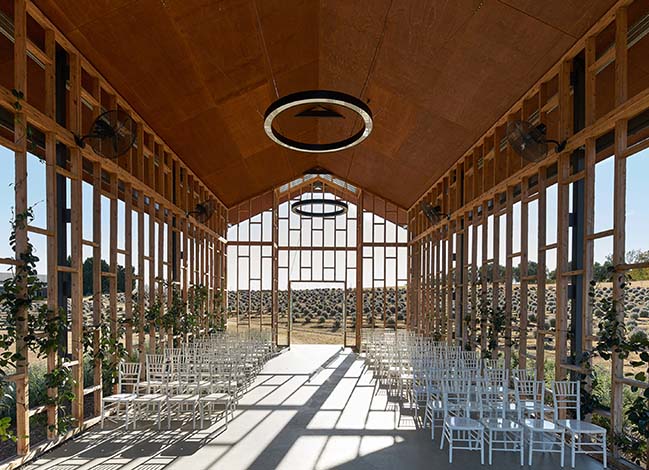
© Alex Chomicz
In the eighteenth century, ruins all over the world were being rediscovered and reinterpreted aesthetically as their popularity and their importance as artistic subjects increased. An increase in travel and travel literature exposed British society to ruins both local and foreign, spurring interest in capturing their picturesque nature. At the same time, a growing awareness of historical documentation and scientific excavations of sites like Pompeii also affected the prevalence of ruins and commanded the attention of the Romantic audience.
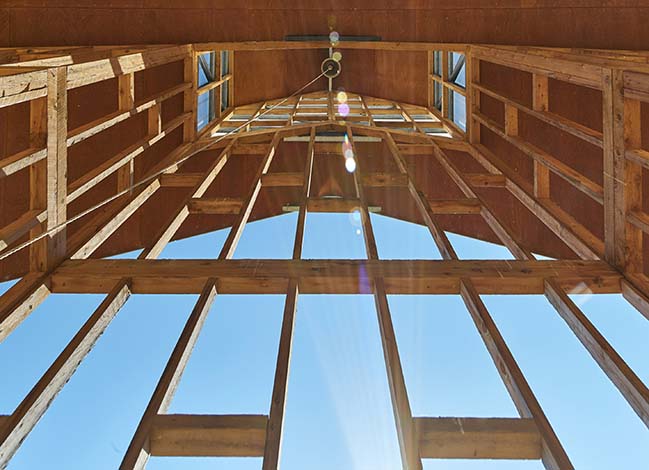
© Alex Chomicz
Frequently "created" as well as found, Romantic ruins invited spectators' reflections on transience, death, and decay. As such, ruins were a staple in Romantic landscape art and garden design.
This curated setting is placed within the context of the mountainous scenic rim and evocatively reminds the visitor of their diminutive place in nature’s higher order.
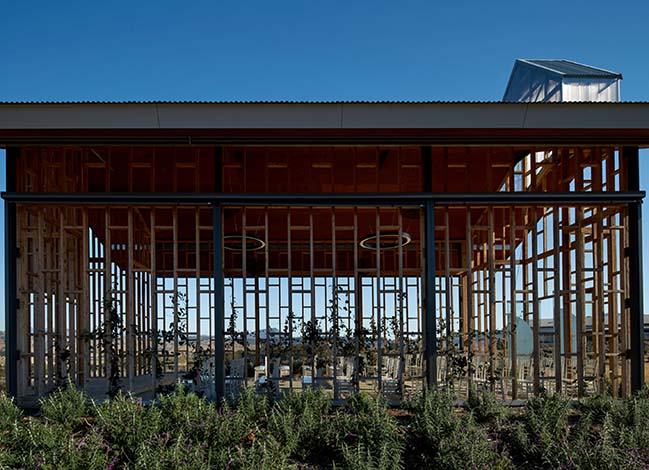
© Alex Chomicz
The 'chapel' is non-denominational. References to religious architecture abound particularly citing the charming small timber chapels of Queensland townships. The bell tower, The nave, the alter, the leaded window. It is then deconstructed as a ‘ruin’ romantically placed in the landscape with vines encouraged to overtake the structure.
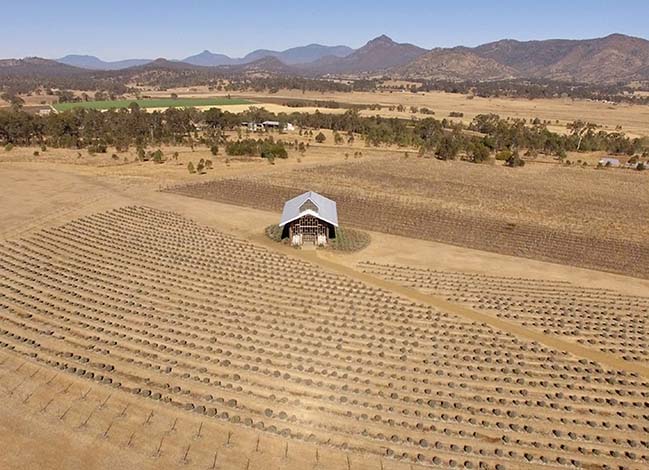
© Alex Chomicz
The building is left with walls described rather than made with an inserted frameless glass nave door which can only symbolically denote the threshold as the walls are so completely porous. The chapel nave aligns with one of the major scenic rim mountain peaks.
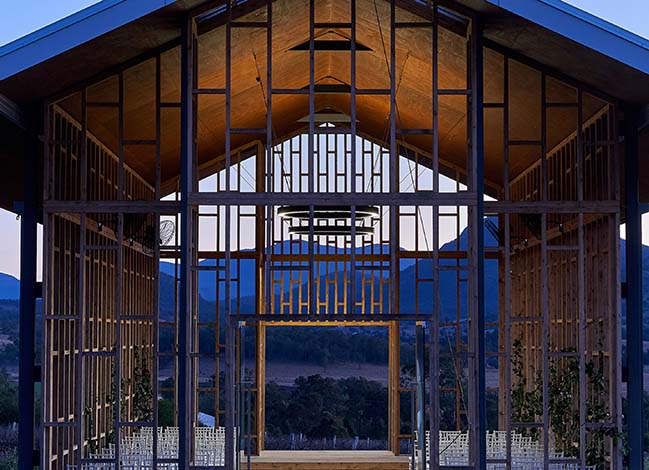
© Alex Chomicz
An open ‘window' frames the view and, all who are intended, make their vows on the raised timber platform to an otherwise veiled landscape. A bell, in an translucent tower, is tolled by the family after the nuptials are complete and rings out the ritual across the Fassifern Valley.
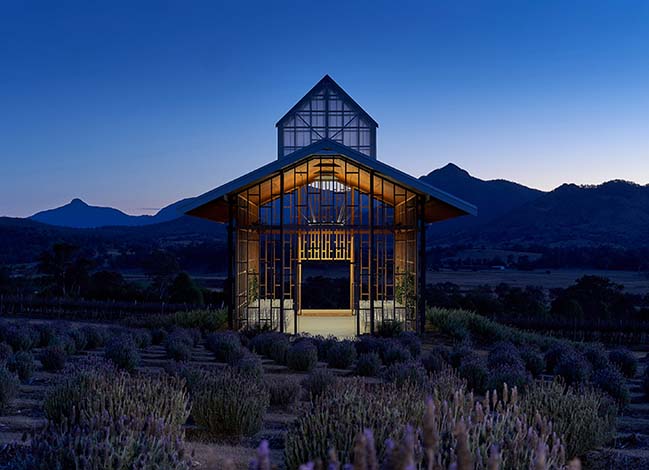
© Alex Chomicz
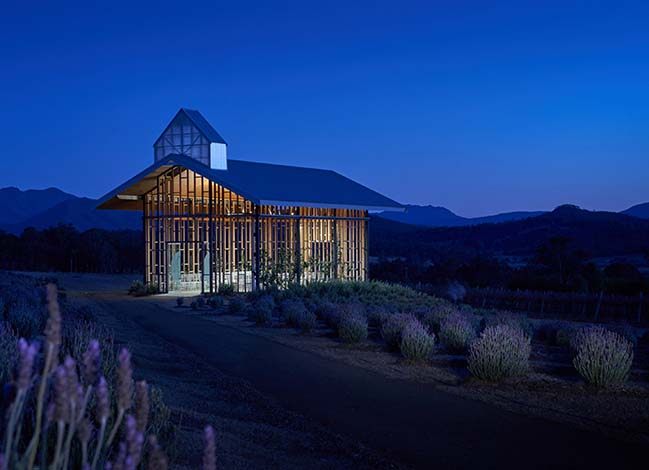
© Alex Chomicz
YOU MAY ALSO LIKE:
> Cloud of Luster Chapel by KTX archiLAB
> Norman Foster's Vatican Chapel at the Venice Architecture Biennale
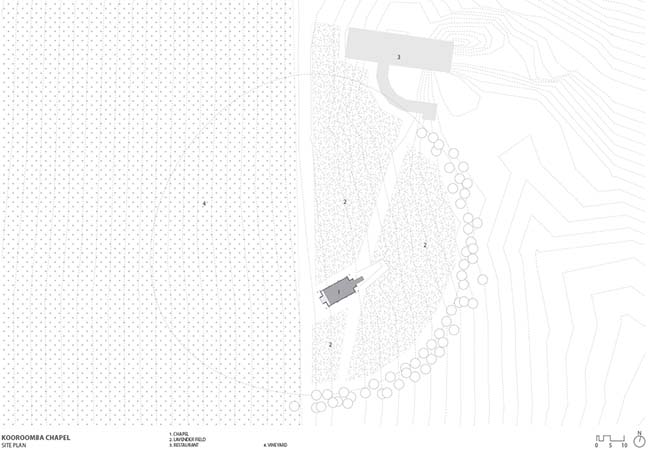
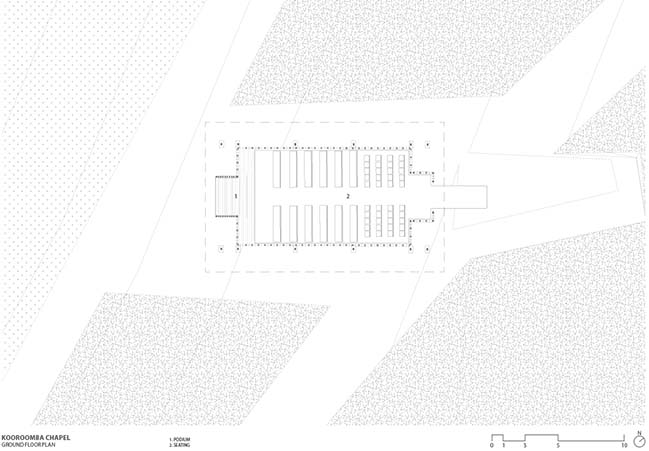
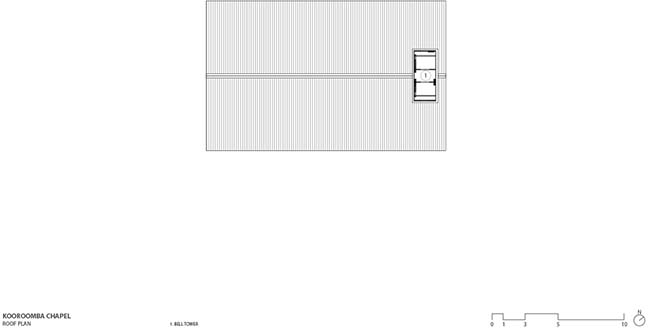
Kooroomba Chapel by Wilson Architects
08 / 22 / 2019 The strategy for the chapel at Kooroomba was to engender an emotive response to place, for the special event of a wedding or the inquisitive exploration of the site...
You might also like:

